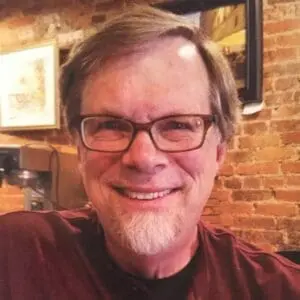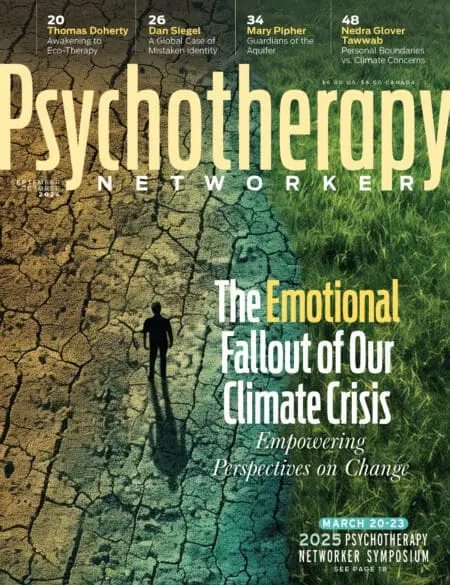I’m lying on the floor, rolled up in the ragged sleeping bag that I resurrected from the basement. Makayla, one of our granddaughters, is in her bed beside me. She’s 3. Her railing is up, and we’ve carefully arranged her friends so they’re comfortable. Of course, Bear, with his simple smile, stubby ears and arms, and raggedy cloth body, has a special place on the pillow beside her. Best friends since Makayla was born, they often have conversations. Sometimes Makayla asks Bear important questions, such as “Where are your legs?” and Bear stoically answers, “I left them at home.”
In the bedroom next door, Makayla’s 5-year-old sister, Gianna, is also arranging her bed while my wife, better known as Grandma, settles into the twin bed beside her. I started dating Grandma when we were both 17. At the time, I never thought of calling her Grandma. Not once. I close my eyes, remembering. Sometimes Gianna asks how old I am. When I tell her, Gianna’s eyebrows spike, and she says, “That’s a big number!” And it is.
Makayla sits up in bed, her red, moppy hair flaring out at angles. She has my reading lamp in her hand. She twirls it like a rag doll. Streaks of light and wild shadows dash about the room. She steadies the lamp and shines it on the ceiling, saying, “Look, Papa, the moon.”
“Wow,” I say.
Makayla was born in a frantic, frightening rush. One day we’ll tell her the story of her birth—how her daddy drove her mommy to the hospital in a snow storm, how if they’d arrived 15 minutes later, both she and Mommy might have died. And how when Grandma followed the same route to the hospital a few hours later, she was held up by a train—for 15 minutes. Sometimes things work out.
Makayla throws me a log-shaped pillow. And a stuffed Snoopy. She doesn’t want me to be lonely on the floor. “Thank you, Makayla,” I say.
“Oh, you’re welcome, Papa,” she says.
Makayla shines the reading lamp around the room again—this time, slowly, carefully—and asks me about every shadow that it casts. “What’s that?”
“The floor lamp,” I say.
“What’s that?”
“The railing from your bed,” I say.
“What’s that?”
“The book shelf,” I say.
She shines it on the ceiling again and the moon is back. She buries the lamp in her fist, and the moon vanishes. She pulls her hand away, and magically it returns. Then she poses her hand in front of the light and flares her fingers. She studies the shadow of her hand as it spans the surface of the moon. “Look,” she says.
“Wow,” I say.
For a fleeting moment, she holds the moon in the palm of her hand. I wonder what she’ll do with it. Hurl it into the farthest corner of the universe and watch it pinball through a million galaxies? Slide it carefully under a microscope and marvel at its delicate intricacies? Lie back on her favorite blankey and giggle at its cheesy face? Pluck it from the velvet firmament and take a big bite? She may be 3, but she’s all-powerful. Anything and everything is possible.
I raise my hand above my face, trying to match, finger for finger, the shadow of Makayla’s doughy, yet delicate hand. I smile and dare to ask, “Someday, Makayla, could you take me with you to the other side of the moon?” By now, though, she’s moved on. And so has time. I sigh and lie back.
The reading lamp now shines on her stuffed friends as she tucks them in. She whispers to each one in soft gibberish. I suggest that it’s time for her to sleep. She doesn’t answer, still busy putting her world in order. Then all is quiet. “Good night,” I say. I lie on the floor listening. All that remains is the darkened room and the moist clucking sound of thumb gently nestled in mouth.
Illustration © Adam Niklewicz
David Seaburn
David Seaburn was an Assistant Professor of Psychiatry and Family Medicine at the University of Rochester Medical Center for nearly 20 years, where he was Director of the Family Therapy Training Program (Psychiatry) and Coordinator of the Psychosocial Medicine Rotation (Family Medicine). He’s the co-author of Family-oriented Primary Care: A Manual for Medical Providers (1990) and Models of Collaboration: A Guide for Mental Health Professionals Working with Health Care Practitioners (1996) and the author of nine novels, including Darkness is as Light (2005), Pumpkin Hill (2007), Charlie No Face (2011), Chimney Bluffs (2012), More More Time (2015), Parrot Talk (2017), Gavin Goode (2019), Broken Pieces of God (2021), and Give Me Shelter (2022). He was a founding member of the Collaborative Family Healthcare Association and its former Treasurer. In 2005, he left the Medical Center to become Director of the Family Support Center in the Spencerport Central School District, a free counseling center for students and their families.













